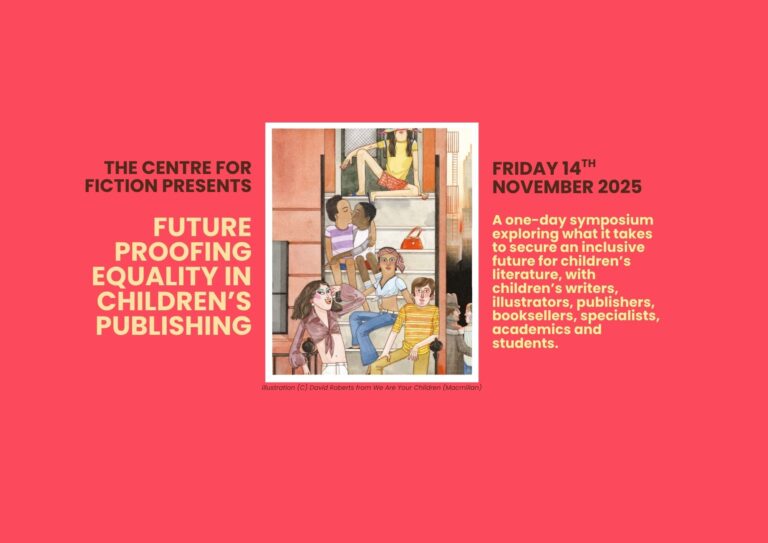Language and Social In/Justice: Advanced Workshop for Teachers
Led by Dr Ian Cushing, Reader in Critical Applied Linguistics at Manchester Metropolitan University, this summer school brought together educators from a variety of schools, for an intensive, two-day summer school on linguistic justice. Teachers were given cutting-edge research resources to read, discuss, and apply in their own classrooms.
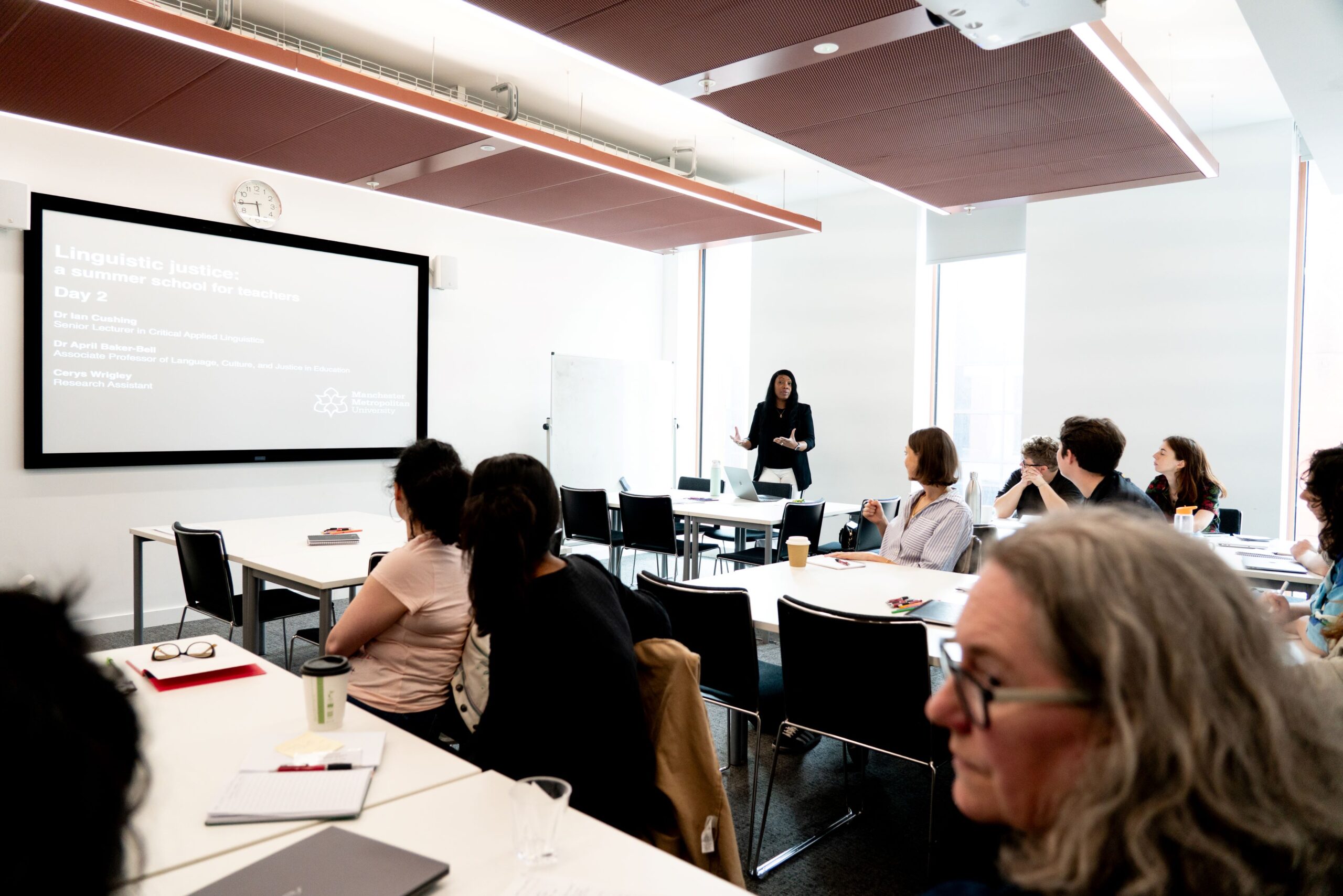
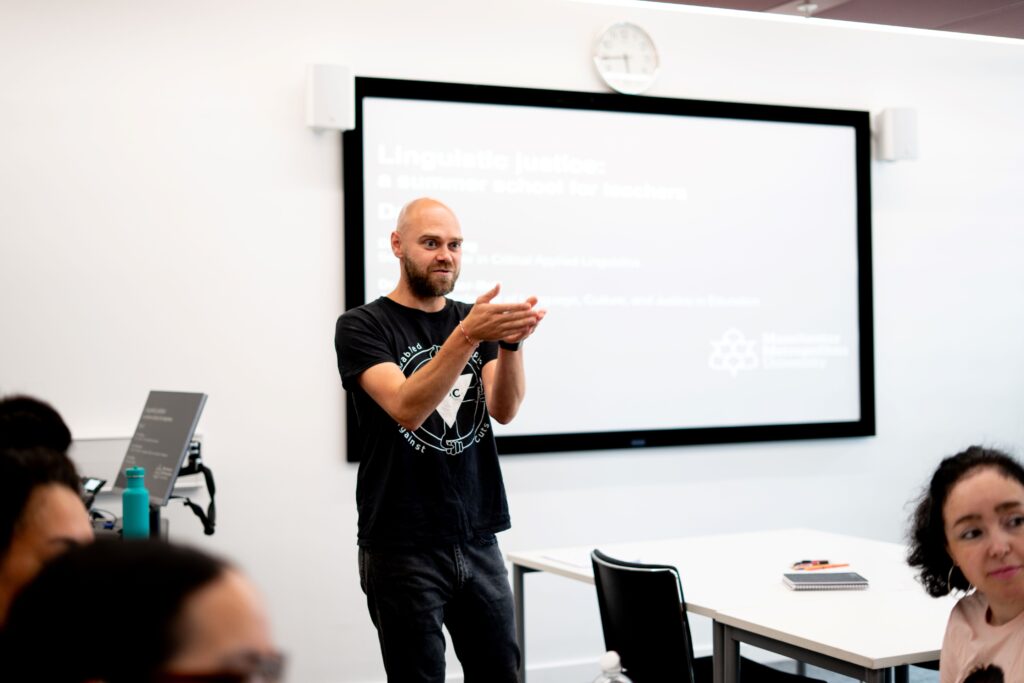
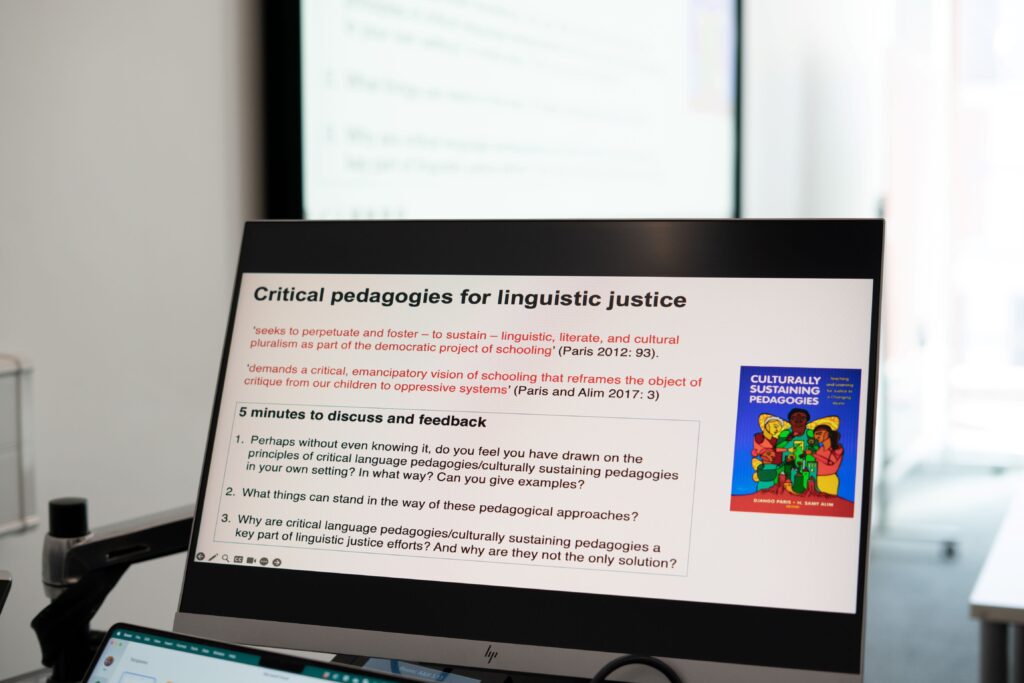
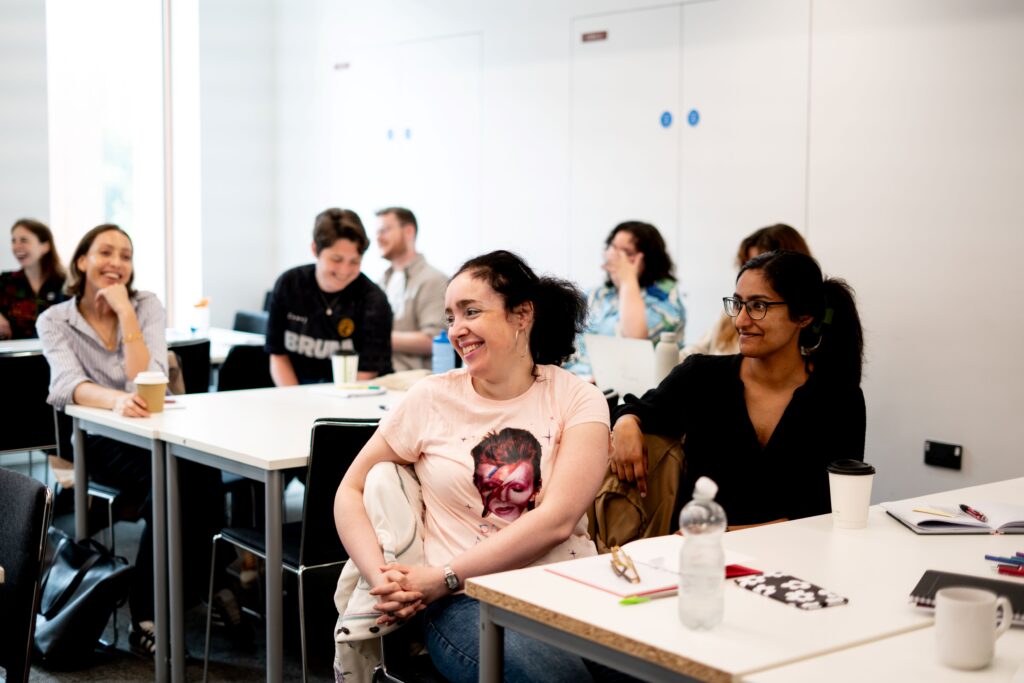
Thursday 12 June & Friday 4 July 2025
Convenor: Dr Ian Cushing – Guest Speaker: Dr April Baker-Bell
Event Overview
Dr Ian Cushing, Reader in Critical Applied Linguistics at Manchester Metropolitan University, brought together educators from a variety of schools, for an intensive two-day summer school on linguistic justice. Teachers were given cutting-edge research resources to read, discuss, and apply in their own classrooms. They were given time away from the classroom to fully immerse themselves in research— relating to language discrimination, deficit thinking, and critical pedagogies for linguistic justice— and reflect on their own practice, and consider how they might make their own classrooms linguistically just spaces.
Dr Cushing, is an ex-school teacher and a world-leading scholar in issues of language and social justice, whose work focuses on the production and maintenance of linguistic inequalities in schools. He was joined by guest speaker, Dr April Baker-Bell, teacher-researcher-activist and Associate Professor of Language, Culture, and Justice in Education at the University of Michigan, to explore the topic through her research in Linguistic Justice (2020).
After the initial session, the teachers involved went back to their classrooms and were asked to consider how they could apply the Linguistic Justice approaches they had covered in the session.
Here are a few of the ways that the teachers used this course in practice.
Teacher Takeaways
Sabbah led a course on linguistic justice with their year 8 class. Sabbah explored some of the main themes of linguistic justice that they had explored in the previous course and asked the students to take notes how they chose to, without guidance, which allowed them to explore their own ways of learning. Sabbah also shared their own experiences of linguistic justice struggles and their students responded with their own examples of linguistic discrimination without being asked/forced to. They looked at examples of accent bias together and students organically talked about examples of codeswitching, the lessons became student-led. In the final lesson, they chose their own groups and came up with their own manifestos for change based on The Black Panthers’ 10 point program. Sabbah emphasised the importance that they were a facilitator, not a leader in this course- it was led by the students and that’s why they felt it was so successful and so many of them got involved with so much enthusiasm.
Catherine covered a few practical things they wanted to go ahead with including creating a new oracy policy, and renaming it “pupil’s voice”. Going forward, Catherine wants to create a new policy to talk about talking and making it more asset based- e.g. looking at ADHD as an asset rather than an “issue”. Catherine wants to investigate using less structure and giving more freedom to students and to stop the impulse to ‘correct’ the way pupils are taught to read and write. Looking at language in educational healthcare plans and the language used to talk about parents- specifically things like parents whose first language is not English. Catherine is looking at more diverse literature, particularly with main characters that are neurodivergent.
Open Access Resources/Reading List
- A critique of ‘oracy’ and its links with linguistic injustice, published in Oxford Review of Education .
- Ofsted’s role in perpetuating linguistic injustice, especially at the intersection points of race and class, published in Language in Society
- How school behaviour policies can be sites of linguistic injustice, published in International Journal of Sociology of Education
- Teachers challenging linguistic injustice and designing linguistically just schools, published in Journal of Language, Identity and Education
- April Baker Bell’s workbook resource
- Black Language Syllabus website
- Linguistic Justice: Black Language, Literacy, Identity, and Pedagogy by Dr. April Baker-Bell
- Please view some of the sample activities that provide you with the praxis of Black Linguistic Consciousness-Raising.
- Linguistic Justice Book Trailer
- Read this timely piece about writing instruction for Black students by Dr. Teaira McMurtry.
- When Our Worlds Collided by Danielle Jawando
- The Weight of Water by Sarah Crossan
- The Hate U Give by Angie Thomas
- The Dread Poet’s Society
“It was a privilege to work with so many critically-orientated teachers who are committed to imagining and realising futures of linguistic justice in their schools. Over two days, I was constantly reminded of the power that teachers have in helping to disrupt inequitable arrangements in schools, in spite of oppressive policies and systems which seek to limit those efforts.
Dr Ian Cushing
Dr Cushing was the recipient of the 2022 UK Literacy Association Brenda Eastwood prize for work on language and discrimination in schools. A 2021 article in Literacy on raciolinguistic surveillance in schools won the 2023 UKLA/Wiley Research in Literacy award. The 2022 monograph, Standards, Stigma, Surveillance: Raciolinguistic Ideologies and England’s Schools won the British Association of Applied Linguistics 2023 Academic Book Prize and was shortlisted for the UK Literacy Association 2024 Academic Book Prize.
Dr Cushing was the proud recipient of the 2023 National Association for the Teaching of English (NATE) Award for Outstanding Contribution to Research and 2023 work in the British Journal of Sociology of Education, on how racialised pre-service teachers experience language oppression, won the 2023 BJSE best early career article.
https://www.mmu.ac.uk/staff/profile/dr-ian-cushing
Case Study Text : Cerys Wrigley, AHEAD Intern
Event Images : Fahreen Fatima @lensphile


